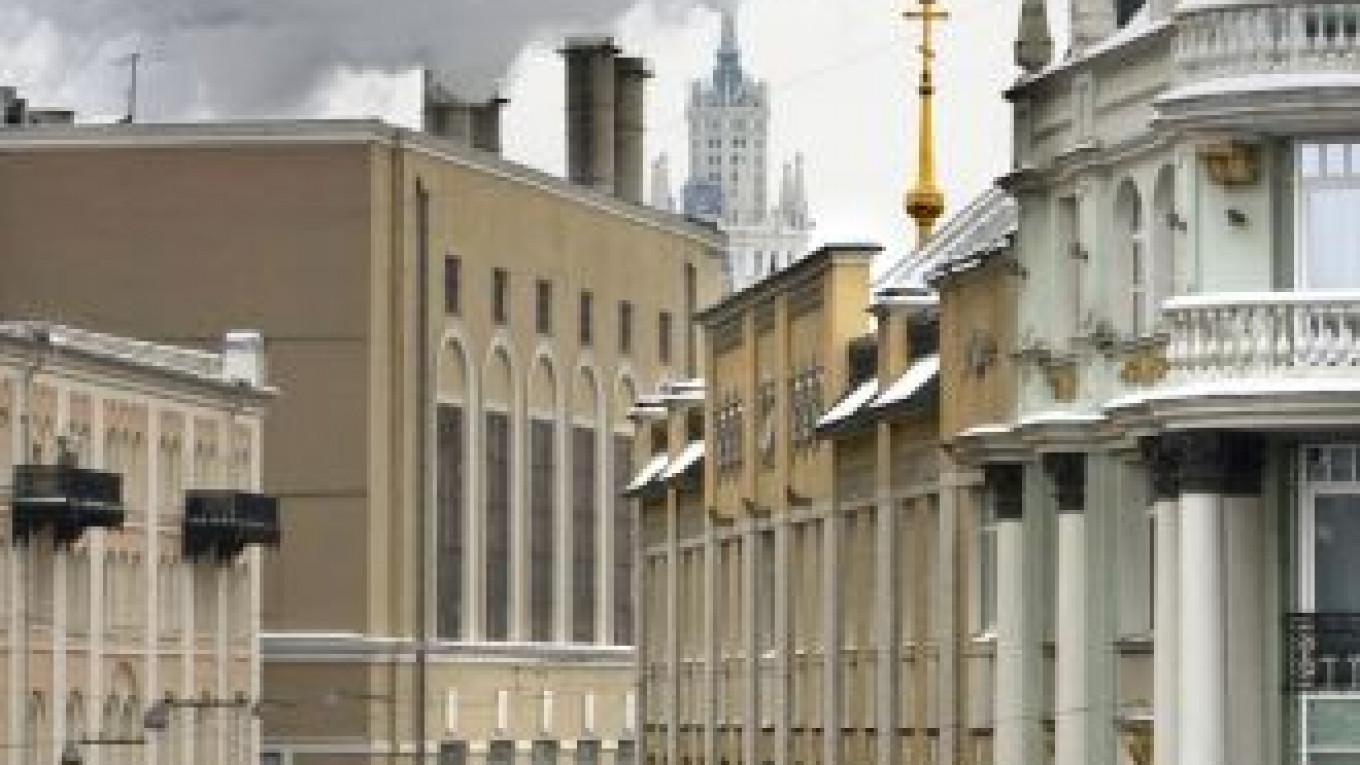The mayor's office has called off hundreds of contracts with developers for fear that their projects will overwhelm a city that is already in the middle of a "transportation collapse," Mayor Sergei Sobyanin said at the opening of the second Moscow Urban Forum on Tuesday.
"Of course, all the contracts were canceled in a civilized manner and accommodating the costs that investors incurred," Sobyanin said. "Many of them received alternative proposals from the city for places where they could build sensibly."
In total, the contracts had envisioned building up to 9 million square meters of real estate, comparable to the area of 30 buildings the size of the Empire State Building in New York.
"In the last year we took the position of making extreme cuts, which probably didn't have such a good influence on our investment climate. In the central part of the city alone we rejected the construction of 1.3 million square meters of real estate that was part of existing investment contracts," said Marat Khusnullin, deputy mayor for urban development and construction. "We understand that today we have arrived at the maximum of what we can build in the center."
The city is currently being developed according to the general plan set out in 2010, which Khusnullin said is littered with "serious mistakes" because it massively underestimates the pace of city growth.
While drafting the plan, municipal authorities had expected that Moscow's population in 2025 would reach 12 million, at most. There are already 11.6 million people living in the city and up to 2 million commuters enter the metropolis daily.
About 40 percent of Moscow's workplaces are concentrated in the city center, while only 8 to 9 percent of the people live in this area. The transportation problems this causes can't be resolved just by changing the transportation infrastructure; they also require changing urban planning, Khusnullin said.
As a solution, the government is developing a master plan to establish 12 alternative employment hubs on the 148,000 hectares that were annexed from the region this summer.
"There will be a brand new urban planning concept developed on these territories — a polycentric city," Sobyanin said. "Along with the historical center, which today has an obvious surplus of working spaces, Moscow must get several alternative job clusters."
The newly added territories will be used mostly for office space, although some residential developments have also been factored in. The territory may support up to 40 million square meters of residential real estate, mostly rented out apartments, Khusnullin said.
City officials expect the alternative job clusters to reduce the burden on Moscow's transportation system, which, like the city's population, has substantially surpassed its growth prognosis.
The general plan from 2010 had estimated that there would be 380 cars per 1,000 Muscovites in 2025. This number has already jumped above 400 and is expected to increase.
"On one hand, this is good that the material well-being of people is increasing," Khusnullin said. "On the other hand, we understand that in our situation today, with the annual growth of 6 percent when we improve the road infrastructure by 1 or 2 percent, this leads to a transportation collapse."
The city government will channel its investments into developing public transportation and road infrastructure, including creating 150 kilometers of new metro lines, 220 additional railways in the Moscow region, bike park zones, more roadways and public transportation lanes, Khusnullin said.
At the same time, officials have abandoned plans to complete construction of a fourth ring road. It cost the city more than $2 billion to build 10 kilometers of this road, and given the overall expected road length of up to 100 kilometers, the city budget could not cover the expense, Khusnullin said.
Related articles:
A Message from The Moscow Times:
Dear readers,
We are facing unprecedented challenges. Russia's Prosecutor General's Office has designated The Moscow Times as an "undesirable" organization, criminalizing our work and putting our staff at risk of prosecution. This follows our earlier unjust labeling as a "foreign agent."
These actions are direct attempts to silence independent journalism in Russia. The authorities claim our work "discredits the decisions of the Russian leadership." We see things differently: we strive to provide accurate, unbiased reporting on Russia.
We, the journalists of The Moscow Times, refuse to be silenced. But to continue our work, we need your help.
Your support, no matter how small, makes a world of difference. If you can, please support us monthly starting from just $2. It's quick to set up, and every contribution makes a significant impact.
By supporting The Moscow Times, you're defending open, independent journalism in the face of repression. Thank you for standing with us.
Remind me later.


